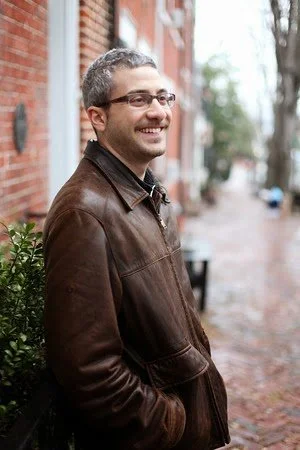It always echoes back to me. You could call it a haunting. You could say ghosted. You can just as easily say that the same loneliness brimming through the old woman’s body brims and finally unfastens me as well.
When I started reciting these old stories with my elders, I felt the slimmest lump in the throat begin to take on a growing heft. These are some of my greatest memories as a mentee under my elders. And it was after the end of our roundtable discussions on the texts that we would begin to read aloud each word, each line, sense the warm touch of every glottal and stressed vowel. Every click of the tongue echoed a little more in my young indigenous, nimíipuu self.
Read MoreI’m excited about seeing “Impure Acts” (my translation of Mauro Covacich’s short story “Atti Impuri” ) in print in the HFR. The idea of an English translation of a contemporary Italian story set in postwar Poland intrigues me in that it interposes several layers of mediation between the reader and the narrator. You have Covacich who conjured up this scene in the mountains outside postwar Krakow and described it in Italian, and then you have the translator (me) importing the story from Italian into English.
Read MoreI found my voice as a writer, ironically, by speaking in other people’s voices, which is to say when I started translating in earnest. Before about five years ago, I’d dabbled in translation. In college, I once got out of taking a final exam in an Italian class by turning in a translation of the brief memoir “Winter in Abruzzo” by Natalia Ginzburg, and later it was the first translation I ever published. Still in college, I started translating Camus’s The Stranger to teach myself French. Living in Japan years later, I collaborated with my friend Mark Caprio to translate the Japanese novel A Heart of Winter by Miura Ayako, which we did manage to finish and publish, and also some contemporary Japanese Buddhist poetry. I should have given in to my fate long ago, but I spent many years writing short stories, personal essays, even a travel column for a while, before I committed to translation wholeheartedly.
Read MoreHaving translated part of Amarsana Ulzytuev’s “anaphora manifesto” for my introduction in the print issue of the magazine, I have already addressed his point about the dominance of end-rhyme so characteristic of Russian verse having been a detriment to the development of anaphora. I would only add that anaphora, being so primal to English verse – in the syntactic sense due to the influence of the King James Bible, and in the broader sense, of alliteration (or “front-rhyme” as Amarsana has it,) characteristic of its earliest strata of Old English alliterative verse – in my process of translating Amarsana’s poems, I did not sense a need to consciously find words that alliterate (after all, an accident of composition) so that the “Englishing” proceeded, as I’m sure did the writing of the originals, in a natural way.
Read MoreThe English translation of The Three-Body Problem, the first of a science fiction trilogy by Liu Cixin, was released on Tuesday by Tor Books.
Warsaw Ghetto, scrapbooks created by Polish author Jewish Mary Berg in 1945, disappeared in 1950, and have surfaced recently to shed light onto the Nazi genocide. The family of Ms. Berg has requested to cancel the auction of her diary.
Read MoreI had heard good things about HFR through some grapevine or other, so I was pretty thrilled when one of the editors approached me in late 2013 and asked if I’d like to submit one of my translations for Issue 54. That was my first, brief reaction.
Read More


